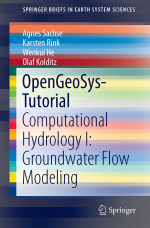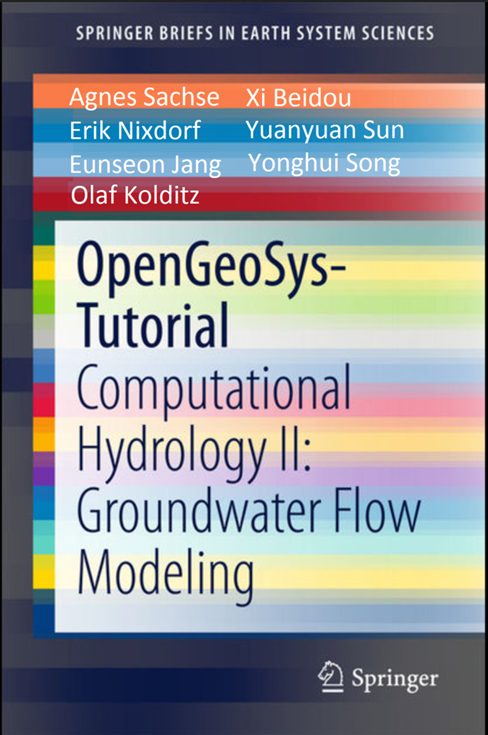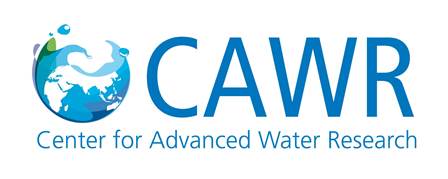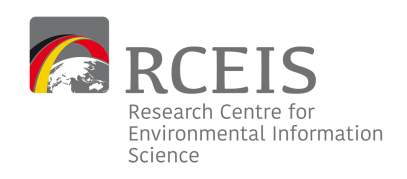17-19 Oct 2016, Dresden-- The 2nd Sino-German Workshop of the Institutes of Hydrobiology (IHB)
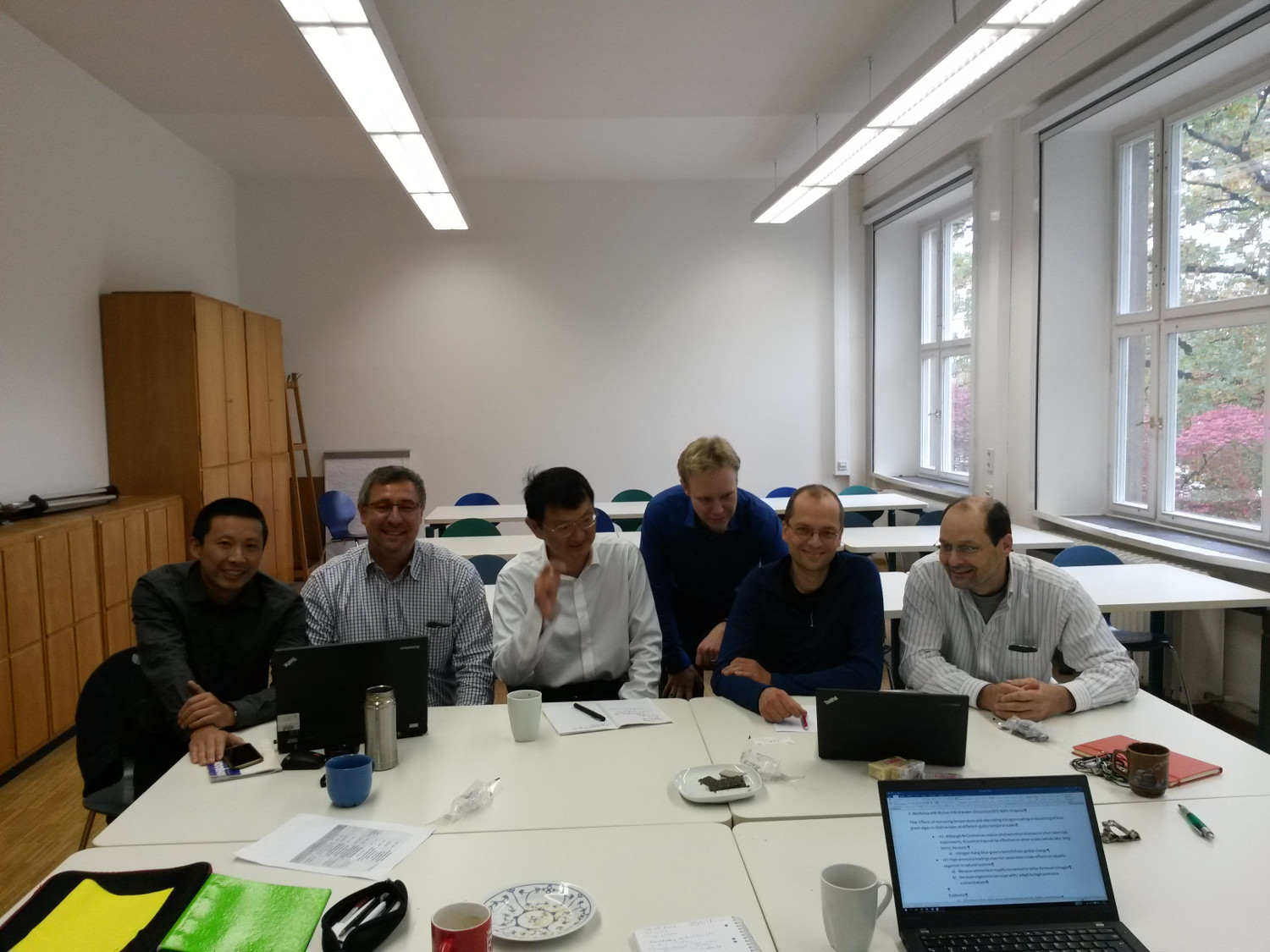
Discussion session in the seminar room of the Institute in Dresden (Foto:Dr. M. Rybicki)
During 17th and 19th of October 2016 the 2nd Sino-German Workshop of the Institutes of Hydrobiology (IHB) in Wuhan (China) and Dresden (Germany) took place in the Institute of Hydrobiology in Dresden.
From IHB Wuhan Professor Dr. WANG Hongzhu, head of the Department of Freshwater Ecology, and Associate Professor Dr. WANG Haijun attended to the three-day workshop. After a short introduction of the IHB Dresden by Professor Thomas U. Berendonk and three additional talks of institute staff, Professor WANG Hongzhu talked about the current state of freshwater assessment in China using organisms (bioindicators) and current problems of aquatic ecosystems in China. Subsequently, Associate Professor WANG Haijun explained the mesocosm facility of the Institute on the Biandantong lake near Wuhan and the ongoing experiments, which focus on the effects of heavy nitrate pollution. The first day of the workshop was finalized by a visit of the biomonitoring field station of the IHB Dresden in the waste water treatment plant in Kreischa near Dresden. Dr. Marcus Rybicki explained the functioning of the station and the successful implementation and usage of the DaphniaToximeter from bbe Moldaenke. The second day of the workshop focused in two sessions on the enhancements and adjustment of the project ideas for the joint DFG-NSFC Call in 2017 and the second phase of the Urban Catchments Project.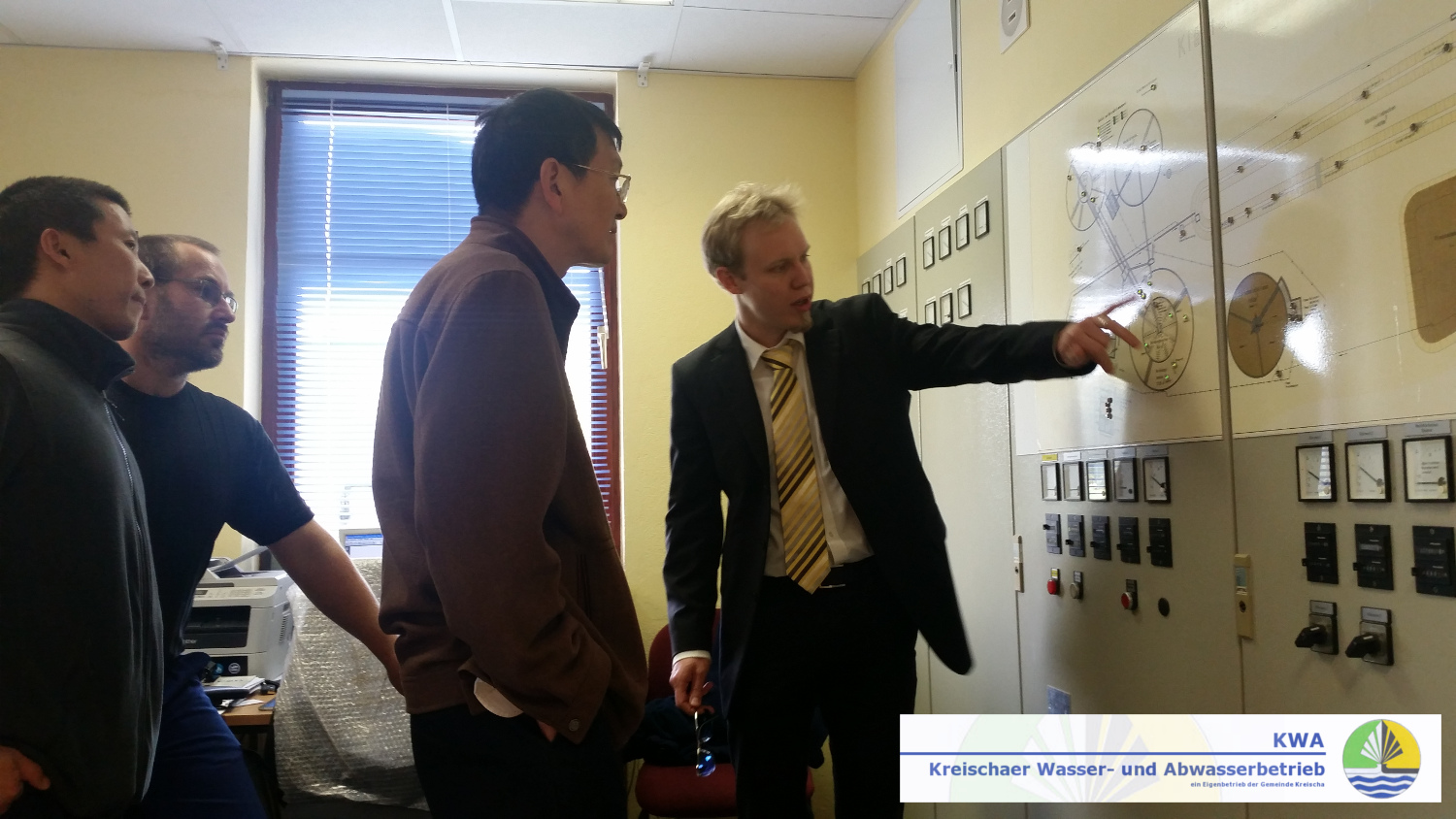 Dr. Rybicki explains the functioning of the waste water treatment plant Kreischa and the position of the monitoring station.(Foto: Dr. M.Rybicki) Professor Thomas Berendonk and Dr. Dirk Jungmann introduced the current project ideas and headed the following discussion. Dr. Bertram Boehrer from UFZ Magdeburg attended the session about the second Urban Catchments phase to complete the scientific partners of project part C. The workshop was finalized in the morning of the third day with the signature of a Memorandum of Understanding of both Institutes. A visit of our industry partners Dr. Frank Neubert (AMC) and Dr. Matthias Haase (WISUTEC) in Chemnitz accomplished this fruitful and discussion rich workshop. (From: Dr. M. Rybicki)
Dr. Rybicki explains the functioning of the waste water treatment plant Kreischa and the position of the monitoring station.(Foto: Dr. M.Rybicki) Professor Thomas Berendonk and Dr. Dirk Jungmann introduced the current project ideas and headed the following discussion. Dr. Bertram Boehrer from UFZ Magdeburg attended the session about the second Urban Catchments phase to complete the scientific partners of project part C. The workshop was finalized in the morning of the third day with the signature of a Memorandum of Understanding of both Institutes. A visit of our industry partners Dr. Frank Neubert (AMC) and Dr. Matthias Haase (WISUTEC) in Chemnitz accomplished this fruitful and discussion rich workshop. (From: Dr. M. Rybicki)
20.09.2016 Leipzig -- Workshop and research visit of CRAES
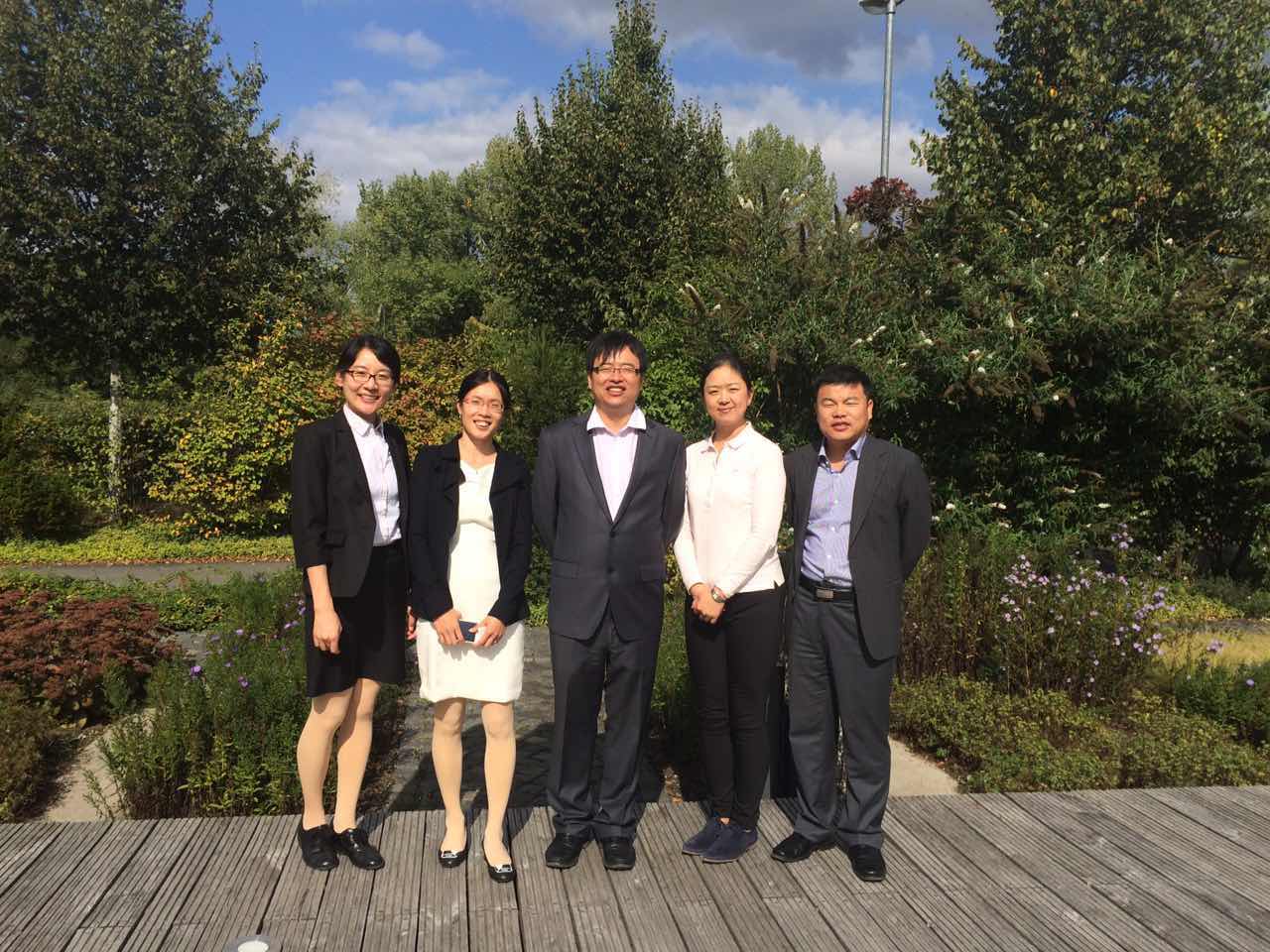
Dhe delegation from CRAES visits UFZ. (Foto: UFZ)
On 20th Sep. 2016, the workshop with the delegation from Chinese Research Academy of Environmental Sciences (CRAES) took place in UFZ, Leipzig.
During the workshop Prof. Beidou Xi from CRAES (Chief Engineer) conducted his workshop about the research of the Institute of Water Environment and most important results of the ESP SUSTAIN H2O project. He also talked about the Groundwater remediation technologies:
• Groundwater environmental system source identification and risk assessment, for example, development of non-disturbance sampler.
• Classified prevention and control theory and remediation technology principle of groundwater pollution. For example, pollution classified and sectionalized prevention and control based on the evaluation results of pollution source strength.
• Optimization regulation of groundwater environmental system and technology system of groundwater quality target management.
From UFZ side Mr. Nixdorf hold a presentation about highlighting the OGS Tutorial (Hydro ll):
• Stationary GW-Model
• Transient GW-Model+ Point Pollutants Transport
• Reactive Nitrate Transport Model
In the afternoon, the CRAES delegation visited VisLab (Artificial Vision and Intelligent Systems Laboratory) and admired the Virtual Geographical Environment using modern visualization technology.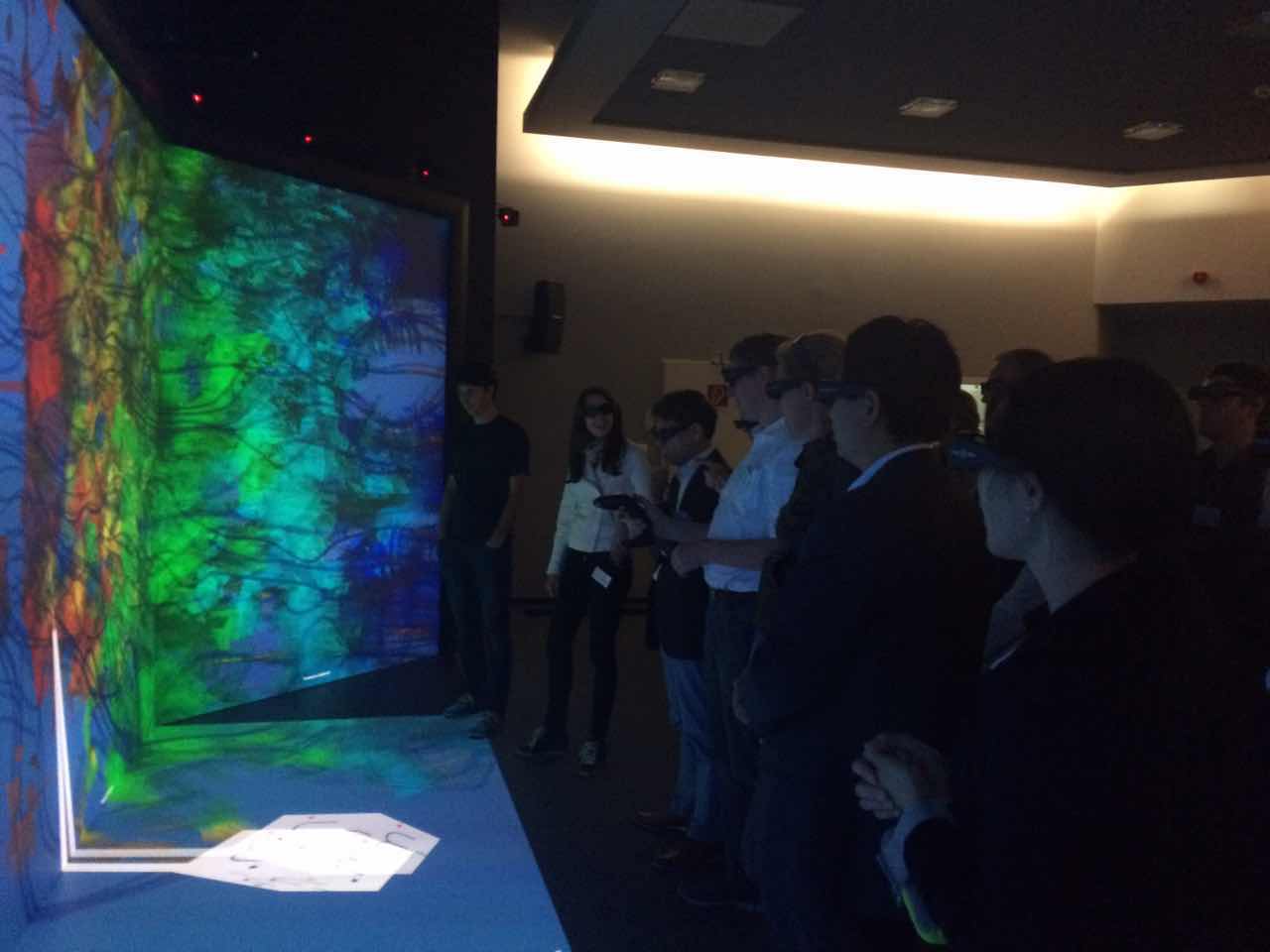 The delegation from CRAES visits VisLab (Foto: UFZ)
The delegation from CRAES visits VisLab (Foto: UFZ)
Subsequently the future cooperation between UFZ and CRASE was discussed which resulted in identifying future working points in the fields Preparation of the BMBF#MoST Conference “Major Water” and some new project ideas.
Four major points are discussed:
(1) Historical data of Chaohu: this is very interesting to complete the Environ- mental Information System for Chaohu.
(2) EST SUSTAIN H20 Book: the preparation of the content of the chapter
(3) OGS Training courses: how to find the financial support from both sides
(4) EU-China activities: find out whether UFZ colleagus and CREAS are interesting in the joint topics.
15-20.08.2016 Dresden: Prof. LIAO Zhenliang (Tongji) zu Gast bei CAWR
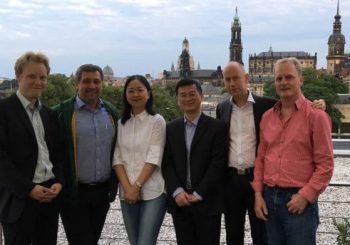
Nach getaner Arbeit der gemütliche Teil mit Blick auf die Dresdner Altstadt (Marcus Rybicki, Dirk Jungmann, Cui Chen, Zhenliang Liao, Olaf Kolditz, Christian Moldaenke) Foto: UFZ
Der Besuch von Prof. LIAO bei CAWR (Centre for Advanced Water Research) hat sich gelohnt. Prof. LIAO war als Gutachter des Promotionsverfahrens von (Dr.) Jin Zhang eingeladen, der sich in seiner Dissertation mit Schadstoffen in urbanen Räumen insbesondere durch den Straßenverkehr beschäftigt hat. Darüber hinaus war Prof. LIAO als Referent bei der CAWR Sommerschule „From Dynamics of Structure to Functions of Complex Networks“ aktiv, die zusammen mit der Purdue University und der University of Florida veranstaltet wurde, und hat dabei über die Wassersituation in Shanghai berichtet. Die Gelegenheit wurde natürlich auch genutzt, um sich über den Stand beider Chaohu-Vorhaben „Urban Catchments“ und „Key Technologies and Management Modes fortheWater Environmental Rehabilitation of a Lake City from the Catchment Viewpoint“ auszutauschen. Dr. Moldaenke von bbe hat Prof. LIAO über die neuen Möglichkeiten des Biomonitoring informiert.
Erste chinesische Version der WISUTEC Software für die „Umweltdatenzentrale Chaohu“ entwickelt und online gestellt
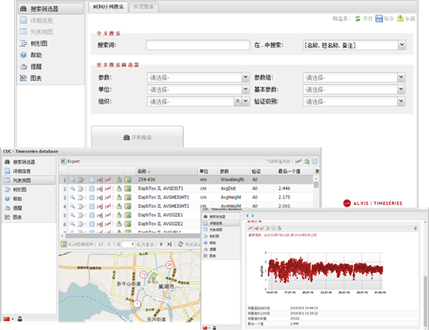
Foto:WISUTEC
Im August hat die Firma WISUTEC Umwelttechnik GmbH den ersten Entwurf einer chinesischen Programmversion für die Datenzentrale im „Urban Catchments“ Projekt entwickelt und online gestellt.
Geplant ist, die endgültige Version bis Anfang 2017 fertigzustellen. Die Verfügbarkeit von Umweltsoftware in den Landessprachen ist eine außerordentlich wichtige Voraussetzung für die Akzeptanz der Forschungsprodukte des BMBF-Vorhabens insbesondere bei den Behörden und Stakeholdern. Mit dieser Softwareentwicklung hat WISUTEC nicht nur einen essentiellen Beitrag für das geplante Umweltinformationszentrum Chaohu geschaffen, sondern auch das „Commitment“ der deutschen Firmenpartner unterstrichen, sich in enger Kooperation mit den chinesischen Firmenpartnern in der Entwicklung von innovativer Umweltsoftware (Wasser 4.0) in China zu engagieren.
Leipzig - 19.04.2016: 1. UC Status-Conference

Das erste Statusseminar des BMBF CLIENT Vorhabens „Managing Water Resources for Urban Catchments“ in Leipzig statt. Foto: RCEIS, UFZ
Leipzig, 14.04.2016: Ziemlich genau ein Jahr nach dem Projektstart fand am 19.04.2016 das erste Statusseminar des BMBF CLIENT Vorhabens „Managing Water Resources for Urban Catchments“ in Leipzig statt.
Ziel des Vorha-bens ist die Entwicklung eines Trinkwasserfrühwarnsystem-Konzepts für die chinesische Stadt Chaohu, die ihr Rohwasser aus dem gleichnamigen See bezieht, der jedes Jahr an massiven Algenblüten infolge der Schadstoffeinträge leidet und ein großes Problem für die Wasserversorgung der Stadt darstellt. Die Akteure sind CAWR (UFZ#TUDD) zusammen mit vier KMUs (AMC, BBE, ITWH, WISUTEC) und OGS e.V. Im ersten Projektjahr wurde bereits Vorzeigbares erzielt, erste Modelle des urbanen Wassersystems (TP-A) sowie des Sees (TP-C), Fortschritte in der Entwicklung von Planungstools (TP-B) und des Biomonitorings (TP-C) sowie eine erste Version des Umweltinformationssystems (TP-D) mit online Datenanbindungen an die UC Monitoringsysteme und 3D Visualisierung. Die Kooperation mit den chinesischen Partnern (CLMA, CCB in Chaohu, der Tongji Universität in Shanghai, NIGLAS Nanjing, CAS Hydrobiologie in Wuhan) hat durch intensive Arbeitsreisen ein neues Niveau erreicht - schon mit ersten gemeinsamen Publikationen und konkreten Plänen für gemeinsame Joint Ventures. Ein wichtiger Meilenstein war die „Deutschland-Tour“ der chinesischen Kooperationspartner zu allen Standorten des Urban Catchments Teams (von Dresden bis Kiel).
Clausthal -10.04.2016: Festakt zur Honorarprofessur von Prof. Dr.-Ing. Wan Gang
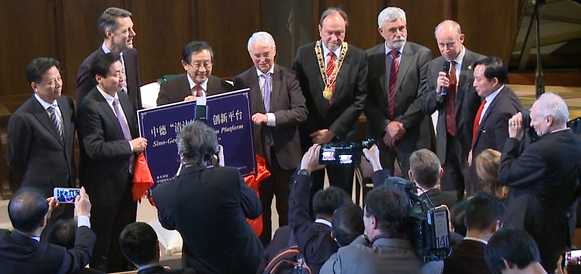
During the ceremony - a new joint Sino-German research platform "Clean Energy" was opened based on a cooperation agreement. Foto: Dennis Böckelken, Maximilian Illhardt, Anja Michaela Kaiser
Clausthal, 10.04.2016: During the ceremony - a new joint Sino-German research platform "Clean Energy" was opened based on a cooperation agreement between TU Clausthal and Sichuan University
Leipzig - 13.01.2016: MoST Delegation visiting UFZ
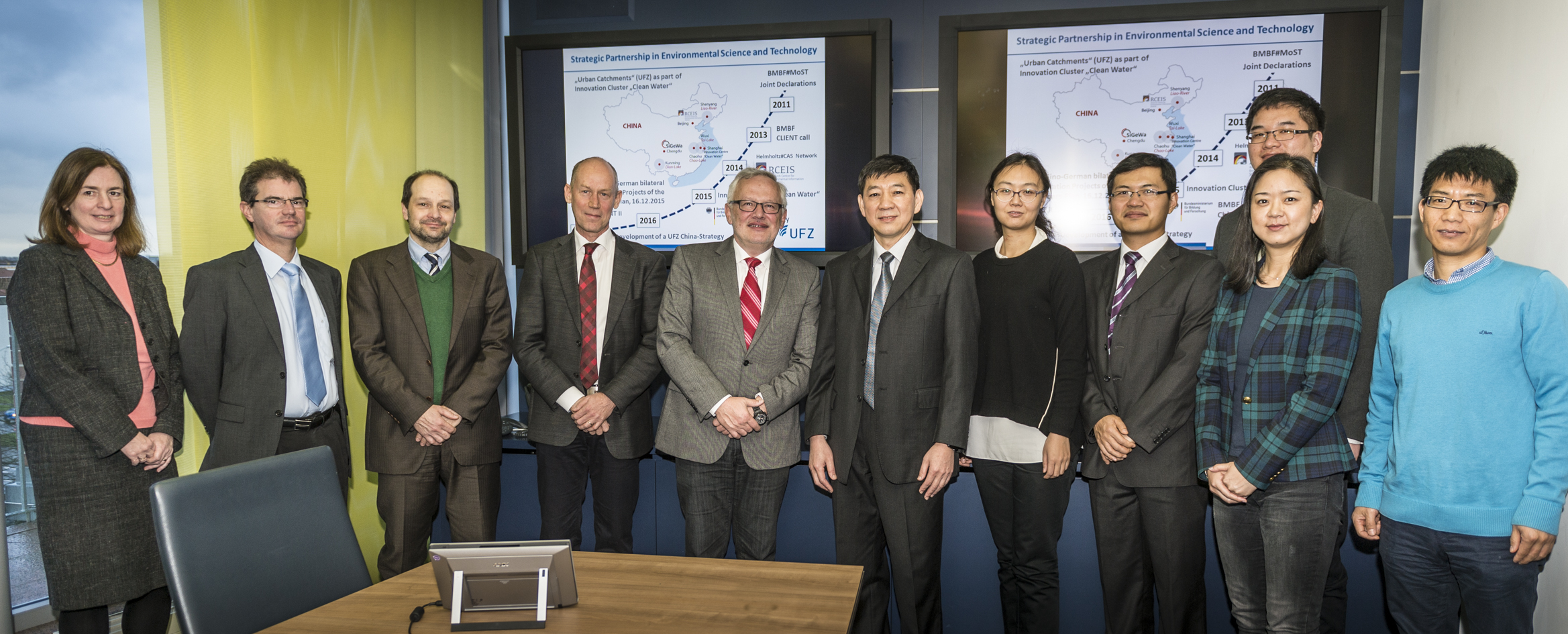
Delegation visit of the Ministry of Science and Technology visiting UFZ. Foto: A. Künzelmann
Leipzig, 13.01.2016: Delegation visit of the Ministry of Science and Technology (Mr. YANG, Deputy General Director) to discuss strategic cooperation between China and Germany in environmental science and technology.
Renewed Cooperation Agreement between UFZ and TONGJI
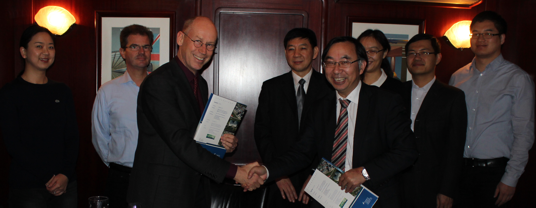
The cooperation agreement between UFZ and TONGJI University (Prof. DAI) has been renewed. Foto: UFZ
The delegation from Ministry of Science and Technology of China (MOST) led by Mr. YANG Zhe visited UFZ on 12th and 13th Jan. 2016. A new cooperation agreement has been signed by both UFZ and Tongji University. Sino-German collaboration projects in the area of clean water and renewable energies have been presented and intensively discussed.
On 12th January 2016, the joint cooperation agreement between UFZ and Tongji University has been renewed under the new challenges of the 13th FYP. The joint research agenda is to continue the development of Urban Catchments concepts for integrated water management of lake cities in the North-China plain such as Chaohu.


